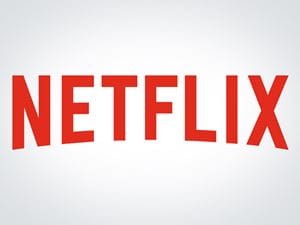
Since August 29th, 1997, Netflix has been revolutionizing the way we consume media, changing the way we entertain ourselves forever. It’s hard to believe that the company, which allows subscribers to watch whatever they want, whenever they want, and on nearly any device, is already nearly 20 years old.
A Brief History of Netflix
Somewhere in the distant past, when tyrannosaurs roamed the earth and rhinestones were the height of fashion, watching television on the internet was unthinkable. But in Scotts Valley, California, two tech enthusiasts named Mark Randolph and Reed Hastings founded a small company that would eventually do just that.
After an infusion of 2.5 million dollars in startup cash, Netflix began selling and renting movies through the mail, using the still relatively new DVD format rather than VHS tapes, which would have been too expensive and fragile to mail.
The company officially launched on April 14th of 1998 with a team of 30 employees and a collection of 925 DVDs, renting the discs out in much the same way that a bricks-and-mortar store might.
Things changed in 1999, though, when Netflix introduced the concept of the monthly subscription, dropping the traditional, Blockbuster-esque rental model in 2000.
Make no mistake—this was groundbreaking. There were no late fees. There were no due dates. There were no shipping fees.
Consumers rejoiced.
Blockbuster was doomed.
Things were slow at first for Netflix, resulting in a few straight years of financial losses. The DVD took some time to be adopted—at the time that Netflix was founded, only a tiny percentage of Americans had access to DVD players.
That was until 2003, when Netflix posted its first profit, earning 6.5 million dollars in revenue and shipping around a million DVDs a day.
By February of 2007, Netflix shipped its billionth DVD. But their mark on the world had yet to truly be made. That would come in the form of streaming video.
An Industry Disruptor
On January 15th, 2007, Netflix announced the feature that would go on to change the world of at-home entertainment: streaming video. The following February, this feature was debuted.
Although Netflix’s first efforts at streaming video featured resolutions well below DVD-quality, the increasing proliferation of broadband internet made it possible for millions of Americans to skip the hassle of waiting on the mail.
Netflix’s first collection of streamed content, which they dubbed “Watch Now,” only had about a thousand titles, which constituted around one percent of their total video library. By 2014, Netflix had spread across the globe, with subscribers in over 40 countries watching a collection of thousands of online shows, streamed in glorious high definition.
This changed everything. Netflix was thought to be the future of movie rentals, as CEO Reed Hastings once said, but it was actually the television industry that the company utterly disrupted. The ease and accessibility of online video now poses a grave threat to the standard model of television programming, and is rapidly pulling subscribers away from the cable industry. More and more, consumers are ditching other television providers and turning to the web for their viewing pleasure.
For the first time, the number of cable and TV subscribers have dropped below 40 million, and TV ratings are consistently plunging.
There’s good reason for this. Netflix has no commercials. It costs one half to a quarter of what a cable subscription does. Video is instant, and there’s a lot of it. There’s no waiting for certain shows to come on at certain times. You can just flop onto your couch and binge-watch—a concept which didn’t exist before Netflix, by the way—anything you want.
Where the traditional model of television drip-feeds viewers their entertainment, Netflix gives them the world.
Who wouldn’t take that deal?
The New King of Original Content
Sealing this deal is the plethora of original content that Netflix is currently producing for its now 87-million-strong streaming audience. Top-quality shows like House of Cards, Stranger Things, Luke Cage, and Black Mirror have taken over living rooms everywhere—and you can only find them on Netflix.
In a 2013 webcast, CEO Reed Hastings explained that this investment into original series was strategic, meant to bring in more subscribers.
Since then, each new series has done better than the last, with almost all of them garnering national attention—just look at the buzz around the upcoming second season of Stranger Things.
When everyone is talking about a show, and the only way to watch it is through Netflix, you get Netflix.
It’s a sound strategy.
Into the Future
“Flexible,” is Netflix’s mantra going into its second decade. With streaming becoming synonymous with watching, it would be easy for the company to become complacent, but this isn’t a term anyone would use for Hastings.
The push for original content will continue, with Netflix putting a planned 6 billion dollars into funding, buying, and licensing hundreds of new, original shows, documentaries, and movies in every one of the major genres, including a venture into reality TV.
International content is on the table as well, with over 1.75 billion dollars being pumped into original content for foreign markets.
Subscribers continue pouring in—often from demographics you wouldn’t expect. Older generations that didn’t grow up online are embracing Netflix, and the company is responding by releasing content—like The Crown—that targets these subscribers.
But now, with upcoming competition from Amazon’s aggressively-expanding streaming service, and from Hulu’s similar streaming subscription package, the pressure for Netflix to keep evolving—as well as the cost of bidding for new shows—is higher than ever.
But despite the competition, there are no signs of Netflix being anything other than the world-leader of streaming video for the foreseeable future.
What’s more, no other company can boast what Netflix can: they’ve changed the way we watch for the first time in decades, have quite possibly annihilated the cable industry, and introduced the world to binge-watching.
That’s no small feat.
Happy birthday, Netflix, and thanks for the gift of streaming video.


